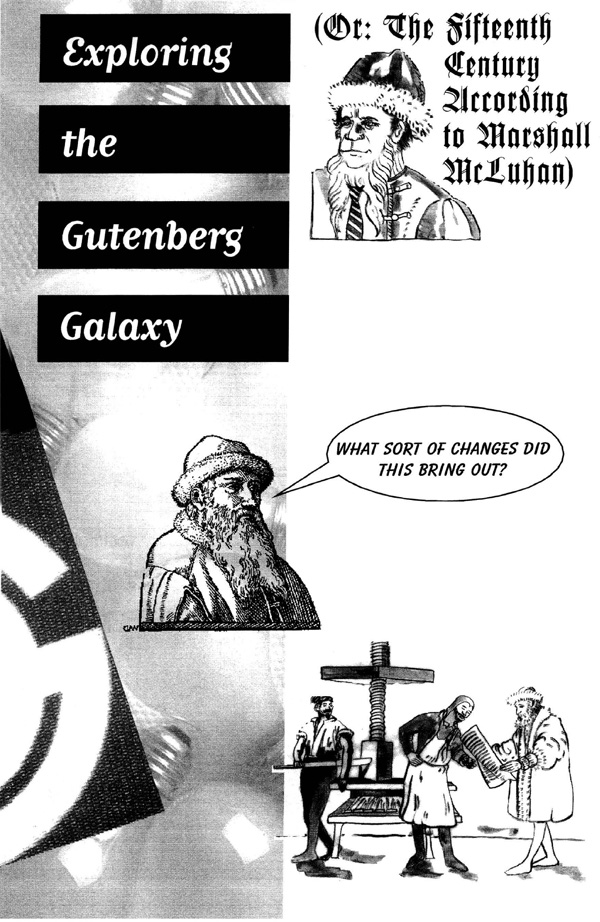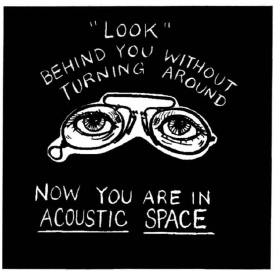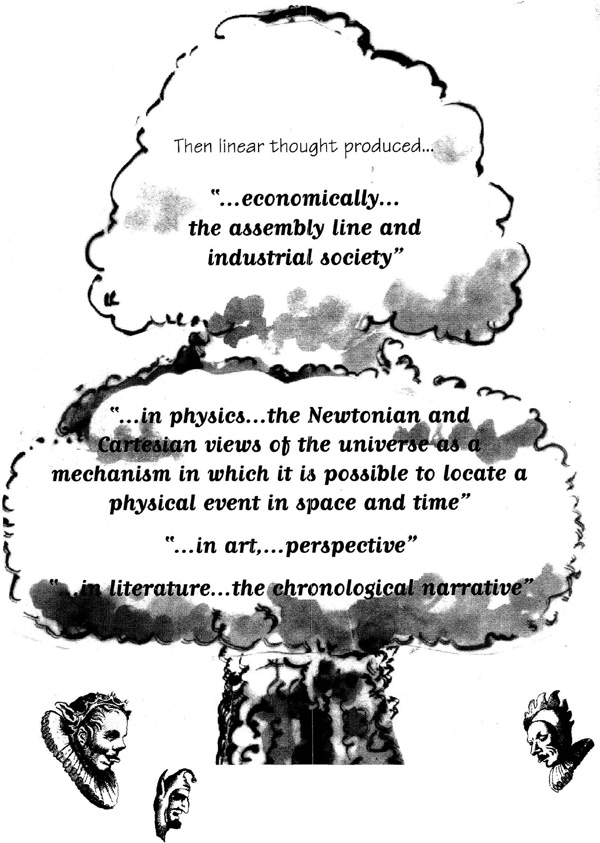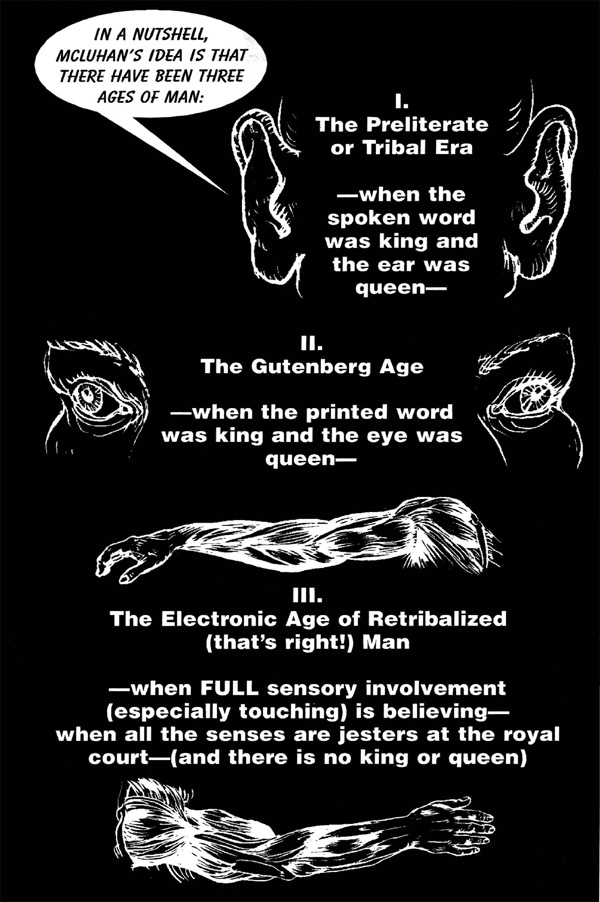 cLuhan’s second book, The Gutenberg Galaxy, warned anyone who was looking that he was a seriously brilliant and totally unconventional man. Galaxy won him the Canadian Governor-General’s Award for nonfiction in 1962 and established his reputation in the Western Hemisphere as a unique thinker.
cLuhan’s second book, The Gutenberg Galaxy, warned anyone who was looking that he was a seriously brilliant and totally unconventional man. Galaxy won him the Canadian Governor-General’s Award for nonfiction in 1962 and established his reputation in the Western Hemisphere as a unique thinker.
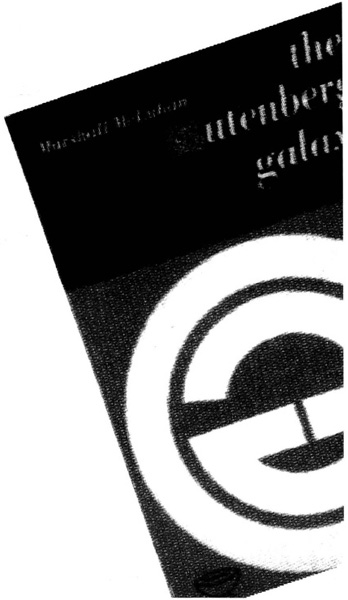
 n the mid-fifteenth century, a German gent named Johannes Gutenberg invented movable type. This invention led to another—the printing press.
n the mid-fifteenth century, a German gent named Johannes Gutenberg invented movable type. This invention led to another—the printing press.
For McLuhan this is always the most important question, so let’s find out what he had to say…
 n the one hand, McLuhan explains, it meant the end of manuscript culture. But he also argued that the consequences were much more far-reaching than simply the loss of jobs for scribes and monks. Printing, he points out, led to the mechanization of writing, which led to the promotion of nationalism and national languages, because international Latin did not have enough scope to provide markets for all the printers.
n the one hand, McLuhan explains, it meant the end of manuscript culture. But he also argued that the consequences were much more far-reaching than simply the loss of jobs for scribes and monks. Printing, he points out, led to the mechanization of writing, which led to the promotion of nationalism and national languages, because international Latin did not have enough scope to provide markets for all the printers.
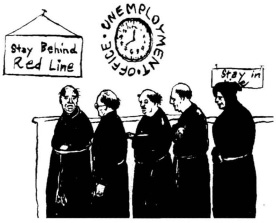
By making books available to individual readers in such large numbers, the new print medium also fostered a sense of private identity and imposed a level of standardization in language that had not prevailed until them. So, “correct” spelling and grammar became a measure of literacy.
However, rather than diminish the effects of the older technology of writing, McLuhan suggests, print culture intensified it. According to McLuhan, before the invention of the alphabet, communication among humans involved all the senses simultaneously (speaking being accompanied by gestures and requiring both listening and looking). The immediacy and rich complexity of this type of communication was reduced by the alphabet to an abstract visual code.
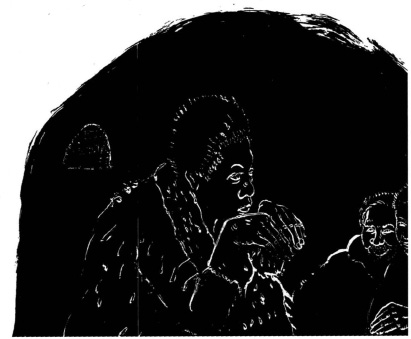
 efore writing became widespread, McLuhan claims, humankind lived in acoustic space, the space of the spoken word. This space is boundless, directionless, horizonless, and charged with emotion. Writing transformed space into something bounded, linear, ordered, structured, and rational. The written page, with its edges, margins, and sharply defined letters in row after row brought about a new way of thinking about space.
efore writing became widespread, McLuhan claims, humankind lived in acoustic space, the space of the spoken word. This space is boundless, directionless, horizonless, and charged with emotion. Writing transformed space into something bounded, linear, ordered, structured, and rational. The written page, with its edges, margins, and sharply defined letters in row after row brought about a new way of thinking about space.

McLuhan claimed that the portable book “was like a hydrogen bomb,” from whose aftermath “a whole new environment—the Gutenberg Galaxy—emerges.” His scenario goes something like this:
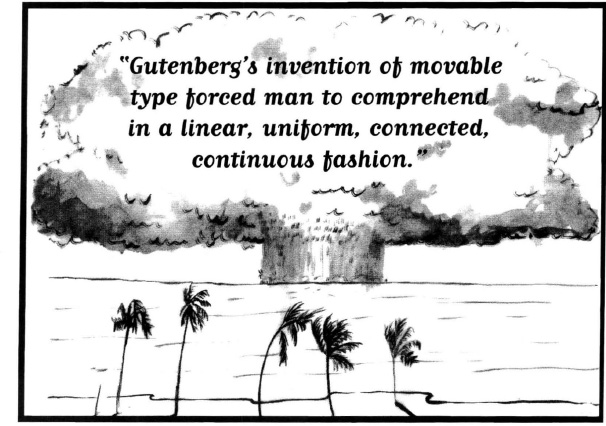
There is more—much more—in The Gutenberg Galaxy but it expands into and dovetails with the full bloom of McLuhan’s vision in Understanding Media, so we’ll put it on hold till we get there.
